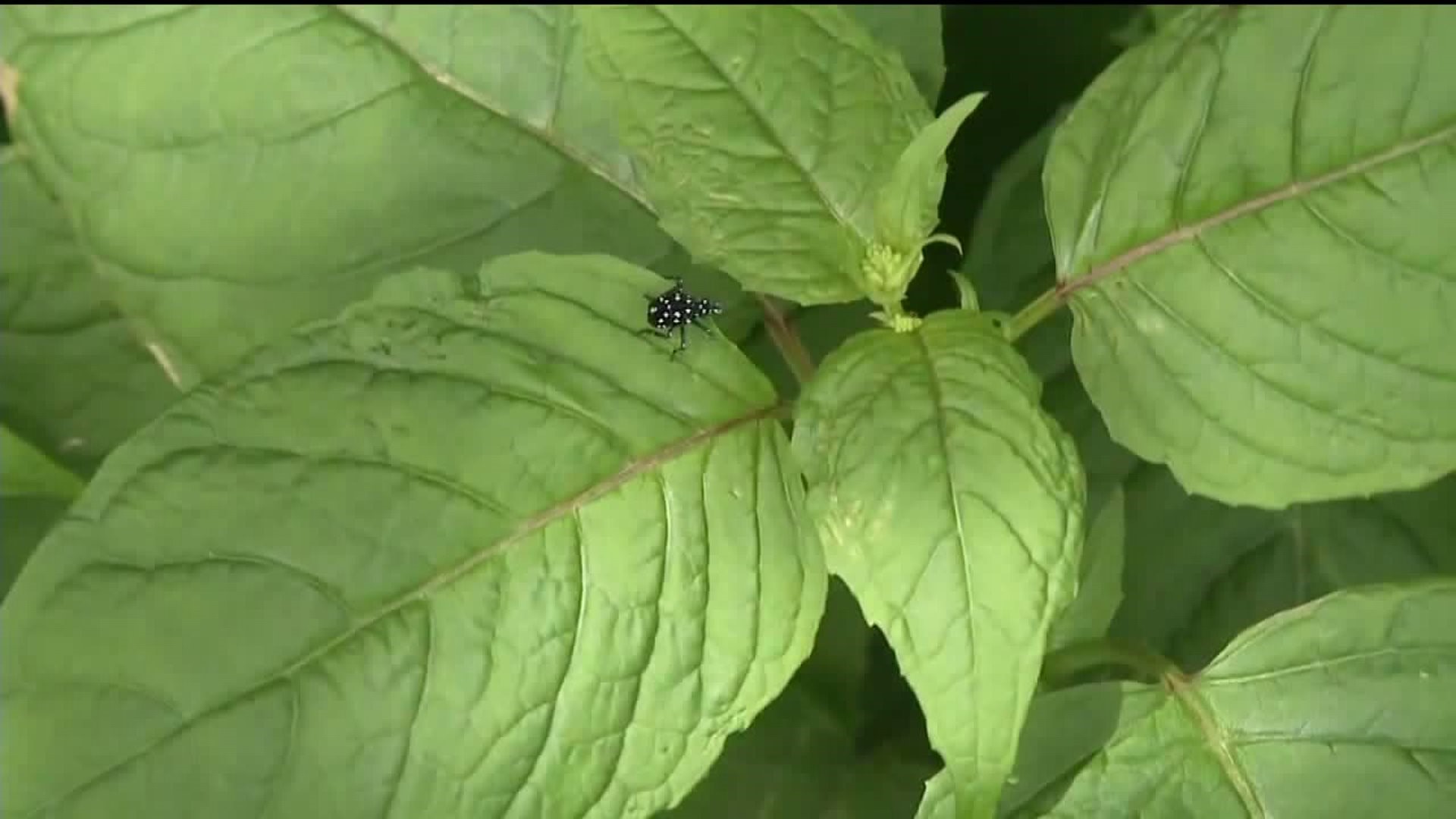EAST STROUDSBURG, Pa. -- More and more spotted lanternflies are showing up in Monroe County. The invasive pest destroys crops such as grapes and hops.
Professors at East Stroudsburg University tell Newswatch 16, if you see one, kill it.
People in Monroe County are posting more and more to social media about sightings of the spotted lanternfly.
This month alone, several townships and the Monroe County Office of Emergency Management put out alerts.
So what should you do if you see one?
"In Monroe County, if you see it, kill it," said Prof. Matthew Wallace, East Stroudsburg University. "Stomp on it or whatever. In the fall and winter, if you see the egg masses on trees, you can scrape them off the trees. They look sort of like cement patches on a tree, so you can scrape those off, kill the eggs. It will be a really big help."
The spotted lanternfly is native to Asia and has now made its way to counties in our area including Carbon, Monroe, and Schuylkill.
Wallace says the bugs aren't harmful to humans but can destroy crops.
"Dangerous, certainly, to different types of plants -- fruit trees, grapes. There is a $19 billion potential loss."
Studying the spotted lanternfly has become so important that students at East Stroudsburg University are actually getting paid to do research.
The USDA is partnering with ESU and funding the program.
"We have about eight different students, and a lot of them are doing research out in the field, not in Monroe County but Lehigh County and Berks County. Every day they are out there looking at different types of traps and lures that we can use to eventually start to control this pest," Wallace explained.
If you see a spotted lanternfly on your vehicle, it is very important you don't drive away with it because that's how they spread.
People who do not live in quarantine zones, if you see one, you should not only kill the bug but also report it to the Penn State Extension.
Click here for more information on spotted lanternflies from the Department of Agriculture.
For more information from Penn State Extension, head here.

